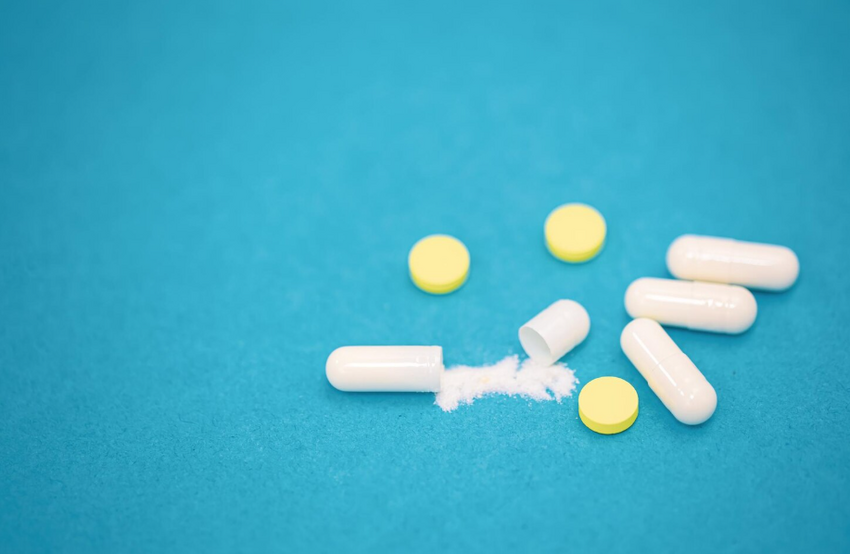Can You Snort Gabapentin?
September 09, 2025 in Research,

Gabapentin, originally developed as an anti-seizure medication, has become one of the most commonly prescribed drugs in the United States. Marketed under brand names like Neurontin and Gralise, this medication belongs to a class of drugs called anticonvulsants or antiepileptics. While initially designed to treat epilepsy, gabapentin has found widespread use in managing neuropathic pain, restless leg syndrome, and as an adjunct treatment for anxiety disorders.
A few facts
- Up to 68% of gabapentin misusers combine it with opioids to boost euphoric effects.
- Over 40 million gabapentin prescriptions were dispensed in 2022 up from 18 million in 2004
- Nearly 90% of gabapentin-detected overdose deaths also involved opioids, particularly fentanyl
Standard Use and Consumption
Under normal medical supervision, gabapentin is taken orally in capsule, tablet, or liquid form. The medication works by affecting calcium channels in the nervous system, which helps reduce abnormal electrical activity in the brain and alters pain signal transmission. Typical dosages range from 300mg to 3,600mg daily, divided into multiple doses throughout the day. The drug has a relatively good safety profile when used as prescribed, with common side effects including dizziness, drowsiness, and coordination problems.
Healthcare providers often prescribe gabapentin for off-label uses, including managing chronic pain conditions like fibromyalgia, diabetic neuropathy, and post-herpetic neuralgia. Its calming effects have also made it popular for treating alcohol withdrawal symptoms and certain psychiatric conditions, though these applications remain controversial in some medical circles.
The Reality of Snorting Gabapentin
The question of whether gabapentin can be snorted reflects a concerning trend in prescription drug misuse. Technically, yes, gabapentin can be crushed and insufflated, but this method of administration comes with significant risks and little benefit. Unlike some medications that produce rapid, intense effects when snorted, gabapentin's bioavailability actually decreases when taken this way.
When gabapentin is consumed orally, it's absorbed through a specific transport system in the intestines that becomes saturated at higher doses. This saturation effect means that snorting the drug doesn't produce the enhanced or accelerated effects that users might expect. Instead, it often results in nasal irritation, potential damage to nasal passages, and unpredictable absorption rates.
The powder form of crushed gabapentin can cause severe irritation to mucous membranes, leading to nosebleeds, chronic congestion, and in some cases, permanent damage to nasal structures. Additionally, the inactive ingredients in gabapentin tablets, such as fillers and binding agents, are not designed for nasal administration and can cause further complications.
Real-World Experiences and Consequences
Emergency departments across the country have reported cases involving gabapentin misuse. Dr. Sarah Martinez, an emergency physician at a major metropolitan hospital, recalls treating a 28-year-old construction worker who had been snorting gabapentin for several months. "He came in with severe nasal congestion, frequent nosebleeds, and complained that the medication wasn't working for his chronic back pain anymore," she explained. The patient had progressively increased his dosage and changed his method of administration, leading to both physical complications and reduced therapeutic effectiveness.
Another case involved a 34-year-old woman who had been prescribed gabapentin for anxiety. After reading online forums suggesting that snorting the medication would provide faster relief, she began crushing her pills. Within weeks, she developed chronic sinusitis and had to be treated with antibiotics. Her anxiety symptoms actually worsened due to the inconsistent absorption and reduced effectiveness of the medication.
Addiction treatment centers have also noted an increase in gabapentin-related admissions. Michael Thompson, a counselor at a rehabilitation facility in Ohio, reports seeing patients who began misusing gabapentin after developing tolerance to their prescribed dosage. "Many don't realize that gabapentin can be habit-forming, especially at higher doses," Thompson notes. "We've seen people escalate from standard oral use to crushing and snorting, often in combination with other substances."
Research and Medical Evidence
Academic research has consistently shown that alternative routes of gabapentin administration offer no therapeutic advantage. A study published in the Journal of Clinical Pharmacology by researchers at the University of Alabama examined the pharmacokinetics of gabapentin across different administration methods. The research demonstrated that intranasal administration resulted in lower peak plasma concentrations and reduced overall bioavailability compared to oral administration.
The National Institute on Drug Abuse (NIDA) has identified gabapentin as an increasingly misused prescription medication, particularly in combination with opioids. Research published in the American Journal of Psychiatry found that gabapentin misuse was associated with higher rates of emergency department visits and overdose incidents when combined with other central nervous system depressants.
A comprehensive review conducted by Johns Hopkins School of Medicine analyzed emergency department data from 2013 to 2017 and found a 119% increase in gabapentin-related visits. The study noted that alternative administration methods, including insufflation, were associated with more severe adverse outcomes.
Medical Recommendations
Healthcare professionals universally advise against snorting gabapentin or any other prescription medication not specifically designed for nasal administration. The risks far outweigh any perceived benefits, and patients experiencing inadequate symptom control should consult their healthcare providers about appropriate dosage adjustments or alternative treatments.
For individuals struggling with gabapentin misuse, medical supervision during discontinuation is essential, as stopping suddenly can lead to withdrawal symptoms including anxiety, insomnia, and in rare cases, seizures. Treatment programs specifically addressing prescription drug misuse are available and can provide comprehensive support for recovery.
The bottom line remains clear: gabapentin should only be used as prescribed, through oral administration, under proper medical supervision.
Stats Sources
- U.S. FDA & CDC
- Gabapentin prescriptions number U.S. 2004-2022 | Statista
- CDC

